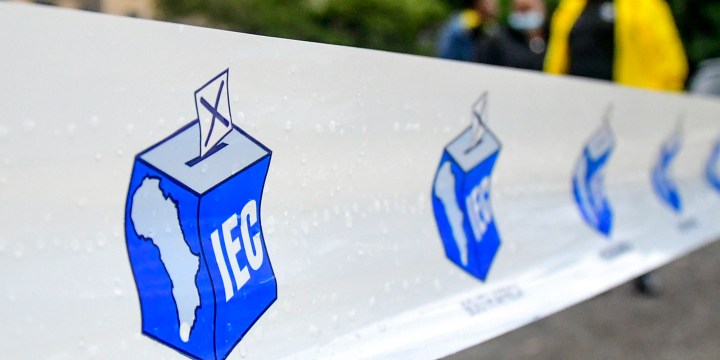MAVERICK CITIZEN
Electoral Laws Amendment Bill not intended to introduce an electronic voting system, says IEC

The electoral commission has stepped in to allay public fears about electoral fraud with a proposed rephrasing of the impugned clauses in the bill to ensure the safeguarding of the proper process of amending legislation governing elections.
On 17 November 2020, in a meeting of Parliament’s portfolio committee on home affairs, the Independent Electoral Commission (IEC) responded to public comments on the Electoral Laws Amendment Bill (B22 of 2020).
Public concern surrounding the bill focused on clauses 14 and 21 of the bill, which seek to empower the IEC to prescribe a different voting method for parliamentary, provincial and local elections.
In particular, concern was expressed that conferring the power on the IEC to unilaterally prescribe a different voting method would be inconsistent with the Constitution, which requires for the details of the electoral system to be prescribed in national legislation following a process of public participation.
In addition, the bill appeared to open the door to the introduction of an electronic voting system. This raised the concern that, in the absence of necessary safeguards, such a voting system could lead to electoral fraud and undermine the fairness of our elections.
In its response to the public, the IEC accepted that the determination of the details of the electoral system is constitutionally reserved for Parliament.
The IEC further accepted that the introduction of an electronic voting system is a matter for national policy, requiring public participation, and should be informed by proper research.
The IEC assured the public that the proposed amendments in clauses 14 and 21 were not intended to introduce an electronic voting system. However, the IEC stressed that a statutory framework was needed to enhance and facilitate research into new electoral technologies.
The IEC, accordingly, proposes that clauses 14 and 21 be rephrased to provide the necessary statutory framework for this research without conferring powers on the IEC that conflict with the Constitution.
The proposed rephrasing of clause 14 of the bill would introduce a new subsection into section 38 of the Electoral Act 73 of 1998 providing that the IEC “may for purposes of piloting new technology prescribe a different voting procedure in a selection of predetermined voting districts provided that the voting procedure so prescribed must, subject to the necessary changes required by the context, conform generally with section 38(1) to (5)”.
Sections 38(1) to (5) of the act prescribe the voting procedure for elections, excluding the voting method (which is prescribed in section 38(6) of the act).
The IEC proposes an identical rephrasing for clause 21 of the bill, which seeks to amend the provisions of the municipal electoral act governing the voting procedure for local government elections.
According to the IEC, this rephrasing achieves two things.
First, the rephrasing limits the applicability of the amendment to piloting in predetermined voting districts. Second, the rephrasing makes it clear that any method that the IEC may introduce cannot depart from the legislatively prescribed voting procedure, excepting the voting method.
The rephrasing proposed by the IEC will do much to ameliorate public concern that the bill is an attempt to introduce an electronic voting system without following the proper process of amending the legislation governing elections. DM/MC
Catherine Kruyer is an advocate and a legal researcher at the Helen Suzman Foundation.




















 Become an Insider
Become an Insider
As regards clause 14, the rephrasing doesn’t change anything. All they’ve done is prefix it with “may for the purpose of piloting new technologies prescribe a different voting system…” It is indeed all about introducing an opaque electronic voting system. Elections must not only be free and fair, they must be seen to be so and a system which is unverifiable to the vast majority of SA citizens does not fit the criteria.